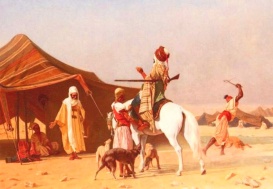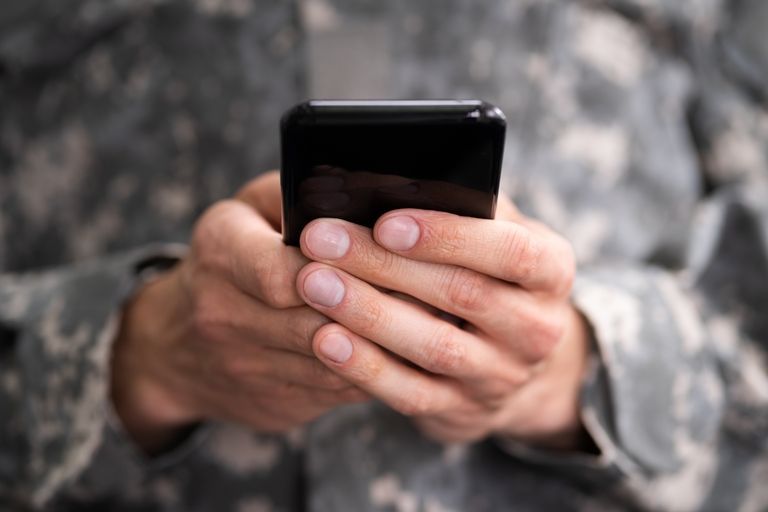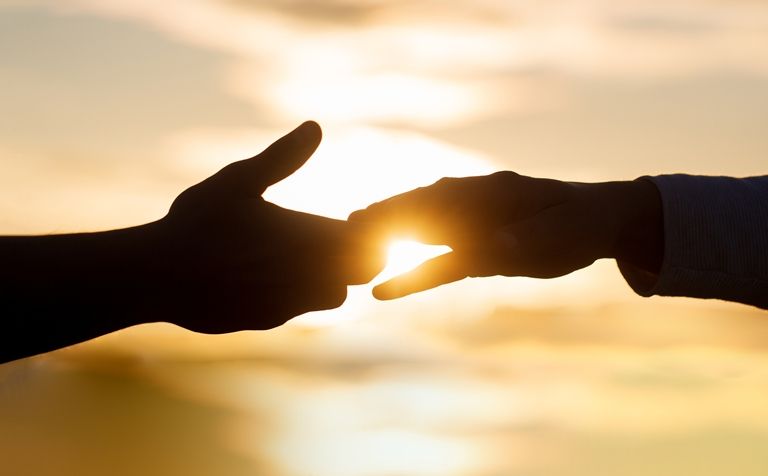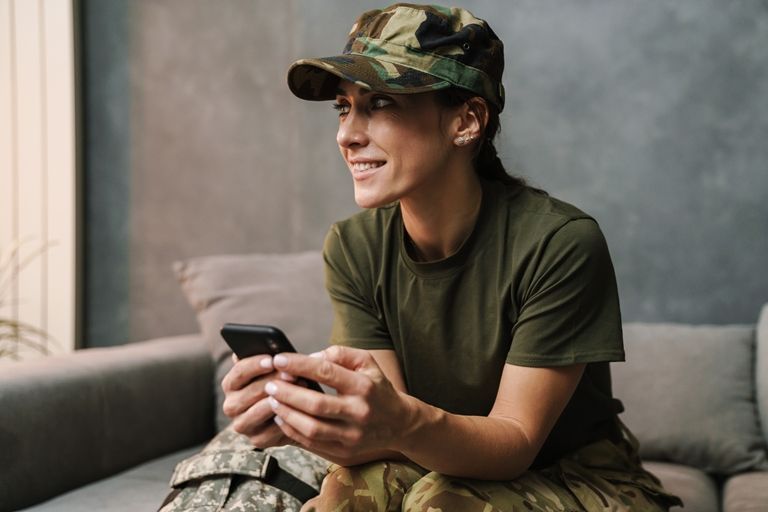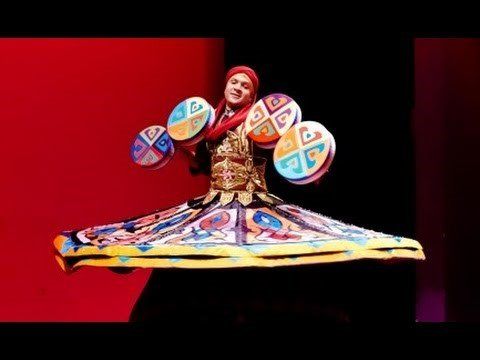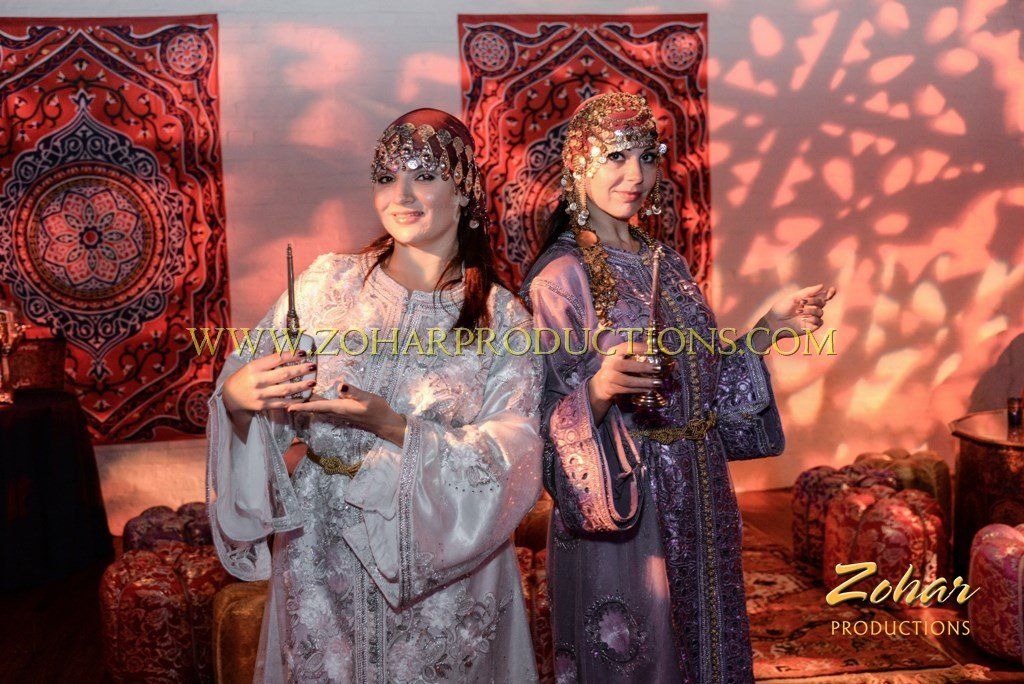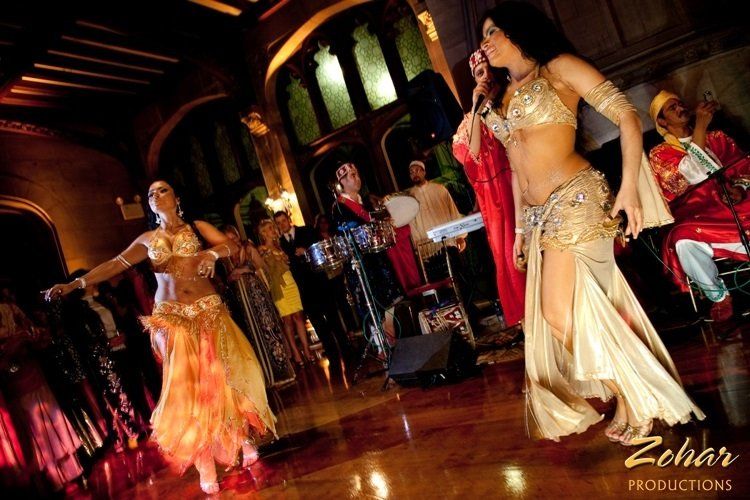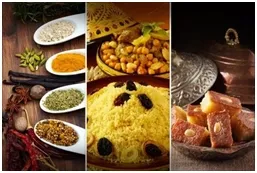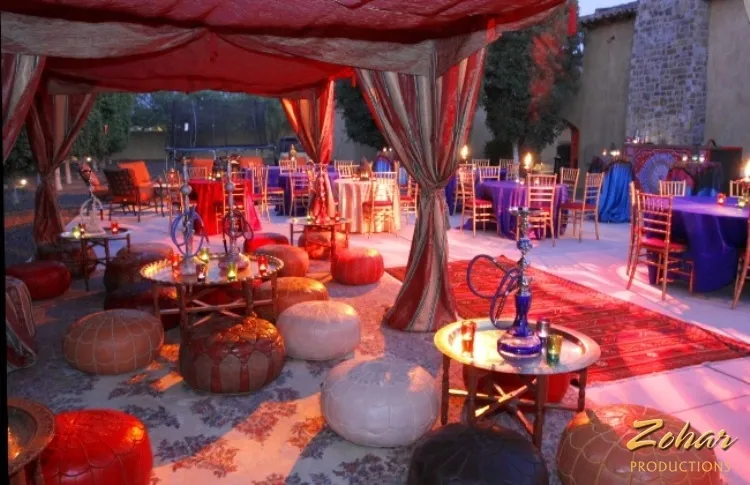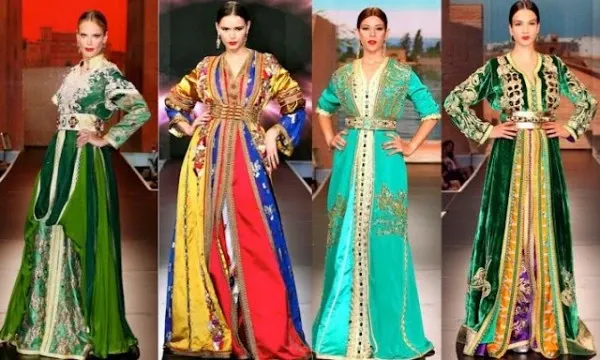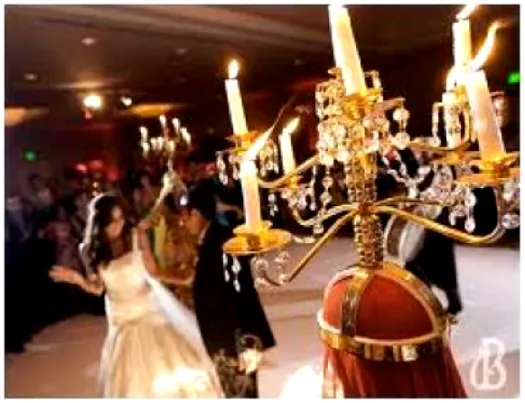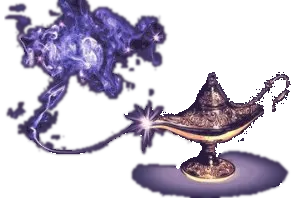Traditional Moroccan Tents
Tents have long been woven into the history and culture of the Morocco. Some tents were designed to withstand the Moroccan desert and decorative tents reserved for royalty.
The Bedouin tent has been a refuge for desert dwellers for centuries and is known as a “beit al-sha’r,” or “house of hair.” These tents were woven by soldiers or herders who ventured across the desert for long periods of time. They wove the tents from the hair of their sheep and goats into strips of coarse cloth known as “fala’if,” which were then sewn together. The colors of the tents were darkly hued, mainly due to the dark goat’s hair, which was occasionally streaked with sheep’s wool, giving it a striped appearance. The Bedouin tent’s only purpose was to act as a form of shelter from the desert.

The tent was low with a somewhat flat roof to ensure it would not blow over by the desert wind. The tent’s cloth was woven loosely to allow heat dispersal, and the black color of the tent absorbed the heat, making the interior of the tent between 10 to 15 degrees cooler than the outside. The tent provided shade from the hot sun as well as insulation on cold desert nights.



The Caidal tents were typically hand-made by a group of forty artisans who lived and worked together for a month. The artisans weaved with their bare hands, showing the history and unique tradition of the Moroccan people: past and present. The lush qualities of the tent reflected the labor of each artisan. The tent’s authentic character allowed them to become the home of extraordinary celebrations.
Although these tents are now used for many different occasions, their appearance has remained relatively the same. The tent interior and exterior decorations symbolize authority, spirituality, and beauty.
The most common combination of colors for the interior of the tents are the national colors of Morocco: red (symbol of power), green (symbol of the sacred), and gold (symbol of wealth). The exterior of the tent is white with a covering of black pineapple-shaped designs, which symbolize fertility.
The Moroccan culture is reflected in every aspect of its tents. When you step inside a Moroccan tent, you are stepping into more than a form of shelter; you are stepping into a part of Moroccan history and tradition.
Moroccan tent rentals are available by contacting Zohar Productions at 800-658-0258 or info@zoharproduction.com


